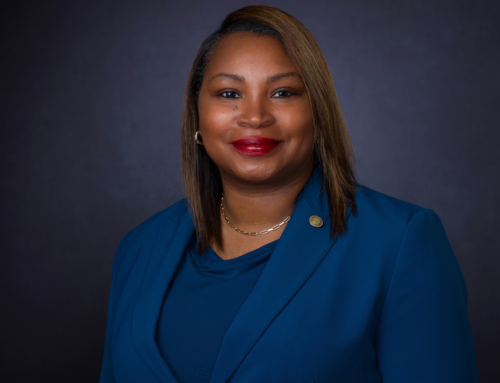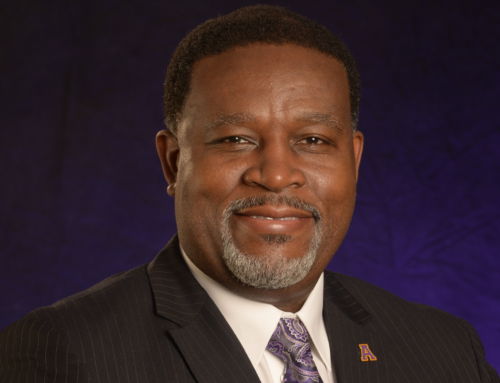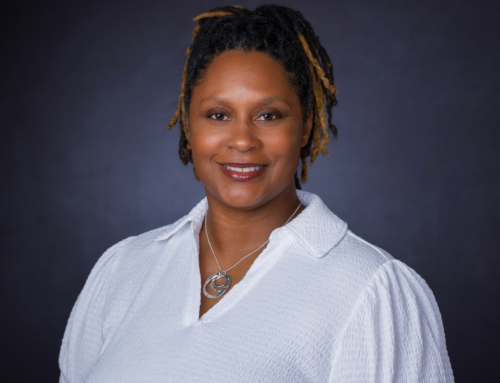Key issues facing rural Mississippi discussed at the annual ASUEP Community Resource Development Conference
Key issues facing rural Mississippi discussed at the annual ASUEP Community Resource Development Conference
“What kind of populations are we going to have in rural communities in Mississippi? Are they going to be growing or declining?” asked Dr. Lionel J. “Bo” Beaulieu, director of the Southern Rural Development Center, to the attendees of the third annual Alcorn State University Extension Program (ASUEP) Community Resource Development (CRD) Conference held recently in Jackson, Mississippi.
“If I was to take all the states in the country and arrange them one through 50 with number one being the most rural state in the nation, where would Mississippi place?” continued Beaulieu. “The answer is: number four. I say all of that because when we talk about rural communities, we are talking about Mississippi, but a lot of times our decision makers forget that 75 percent of our population is rural Mississippi. We have to make decisions and investments that don’t forget that.”
Beaulieu gave insight on the loss of population that many rural communities are facing, “They are becoming ghost towns. Some cannot really stay alive and there are some that are revitalizing. We are losing the best educated people. We have a lot of elderly people in rural communities and that really raises some issues about the vitality of the community. We are faced with the decision of where we should change our economic development strategies to recognize the differences in our populations.”
Beaulieu elaborated on the racial and ethnic diversity that is beginning to transform many rural communities, “We know that in Mississippi we have had a strong African-American and Caucasian population, but we are becoming more diverse and that raises a lot of challenges. We are getting more Latino and Asian community members and we have to find a way to work collaboratively.
He added, “We hear a lot about becoming a knowledge economy and about investing in STEM (science, technology, engineering, and mathematics). These are real struggles for rural communities. How do we become a knowledge economy? We don’t have a lot of people in Mississippi in the knowledge occupations as only 2.4 percent of jobs in Mississippi are in the STEM area. And if we are going to invest in STEM, how are we going to make sure rural Mississippi is not left behind?” he asked.
Beaulieu continued, “We also hear a lot about going green, creating a green economy, and renewable revenue. Where else can that happen but in rural Mississippi?” continued Beaulieu. “We are one of the largest agricultural industries in the country and we have a tremendous opportunity to build our green economy. Together, we need to figure out how we can identify our economic advantages as a region not as a small community.”
“One out of five jobs of employed persons in Mississippi belongs to people who are self-employed,” said Beaulieu. “It is one of the most overlooked and underappreciated components of our state’s economy. To become successful, we need to grow the entrepreneurial spirit that’s already here in rural Mississippi.”
According to him, other components of successful development of rural areas are: a well-educated and skillful workforce, health and wellbeing, and communication means such as broadband high-speed Internet.
“About 70 percent of Mississippians say that not only do they research products online, but they buy products online as well. However, there is only one out of four businesses in Mississippi with an online presence. Can you imagine the billions of dollars being lost because we don’t have businesses that know how to use e-commerce or get online? Also, can you imagine having local government transparency? Citizens could weigh in online about issues being debated. Broadband is a good way for local government to build a stronger relationship with their citizens. The reality is that that’s the future.”
For more details on programs and services provided by ASUEP, please contact Katrina McLin, area community resource development educator at 601.372.1424 or [email protected] .
“What kind of populations are we going to have in rural communities in Mississippi? Are they going to be growing or declining?” asked Dr. Lionel J. “Bo” Beaulieu, director of the Southern Rural Development Center, to the attendees of the third annual Alcorn State University Extension Program (ASUEP) Community Resource Development (CRD) Conference held recently in Jackson, Mississippi.
“If I was to take all the states in the country and arrange them one through 50 with number one being the most rural state in the nation, where would Mississippi place?” continued Beaulieu. “The answer is: number four. I say all of that because when we talk about rural communities, we are talking about Mississippi, but a lot of times our decision makers forget that 75 percent of our population is rural Mississippi. We have to make decisions and investments that don’t forget that.”
Beaulieu gave insight on the loss of population that many rural communities are facing, “They are becoming ghost towns. Some cannot really stay alive and there are some that are revitalizing. We are losing the best educated people. We have a lot of elderly people in rural communities and that really raises some issues about the vitality of the community. We are faced with the decision of where we should change our economic development strategies to recognize the differences in our populations.”
Beaulieu elaborated on the racial and ethnic diversity that is beginning to transform many rural communities, “We know that in Mississippi we have had a strong African-American and Caucasian population, but we are becoming more diverse and that raises a lot of challenges. We are getting more Latino and Asian community members and we have to find a way to work collaboratively.
He added, “We hear a lot about becoming a knowledge economy and about investing in STEM (science, technology, engineering, and mathematics). These are real struggles for rural communities. How do we become a knowledge economy? We don’t have a lot of people in Mississippi in the knowledge occupations as only 2.4 percent of jobs in Mississippi are in the STEM area. And if we are going to invest in STEM, how are we going to make sure rural Mississippi is not left behind?” he asked.
Beaulieu continued, “We also hear a lot about going green, creating a green economy, and renewable revenue. Where else can that happen but in rural Mississippi?” continued Beaulieu. “We are one of the largest agricultural industries in the country and we have a tremendous opportunity to build our green economy. Together, we need to figure out how we can identify our economic advantages as a region not as a small community.”
“One out of five jobs of employed persons in Mississippi belongs to people who are self-employed,” said Beaulieu. “It is one of the most overlooked and underappreciated components of our state’s economy. To become successful, we need to grow the entrepreneurial spirit that’s already here in rural Mississippi.”
According to him, other components of successful development of rural areas are: a well-educated and skillful workforce, health and wellbeing, and communication means such as broadband high-speed Internet.
“About 70 percent of Mississippians say that not only do they research products online, but they buy products online as well. Howe
ver, there is only one out of four businesses in Mississippi with an online presence. Can you imagine the billions of dollars being lost because we don’t have businesses that know how to use e-commerce or get online? Also, can you imagine having local government transparency? Citizens could weigh in online about issues being debated. Broadband is a good way for local government to build a stronger relationship with their citizens. The reality is that that’s the future.”
For more details on programs and services provided by ASUEP, please contact Katrina McLin, area community resource development educator at 601.372.1424 or [email protected] .



